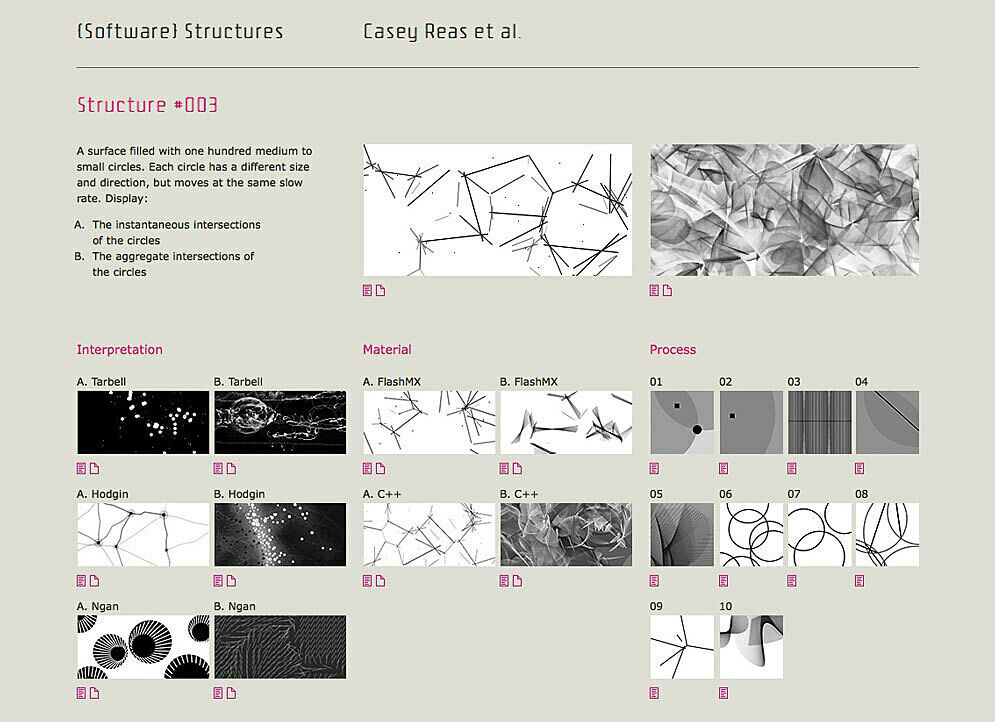Casey Reas: Software Structures
Launched 2004, Restored 2016
Casey Reas: Software Structures
Inspired by Sol LeWitt's wall drawings, {Software} Structures explores the relevance of conceptual art to the idea of software as art. Casey Reas created three unique structures—text descriptions outlining dynamic relations between elements—which were then implemented: twenty-six pieces of software derived from the textual structures were coded to isolate different components, including interpretation, material, and process. For each of them, you may view the software, source code, and comments.
"The catalyst for this project is the work of Sol LeWitt, specifically his wall drawings. I had a simple question: 'Is the history of conceptual art relevant to the idea of software as art?'" explains Reas. "I began to answer the question by implementing three of Lewitt's drawings in software and then making modifications. After working with the LeWitt plans, I created three structures unique to software. These software structures are text descriptions outlining dynamic relations between elements. They develop in the vague domain of image and then mature in the more defined structures of natural language before any thought is given to a specific machine implementation. Twenty-six pieces of software derived from these structures were written to isolate different components of software structures including interpretation, material, and process. For each, you may view the software, source code, and comments."
Originally created by Casey Reas with Jared Tarbell, Robert Hodgin, and William Ngan, {Software} Structures was restored by Reas in 2016 to work well with contemporary web browsers. The original software was created as Java Applets which are no longer widely supported in web browsers. The updated version uses JavaScript to be more accessible.
Some of the works within this project rely on Flash or Java applets, emulated through Ruffle and CheerpJ to run in modern browsers.
artport
View more on artport, the Whitney Museum's portal to Internet and new media art.

